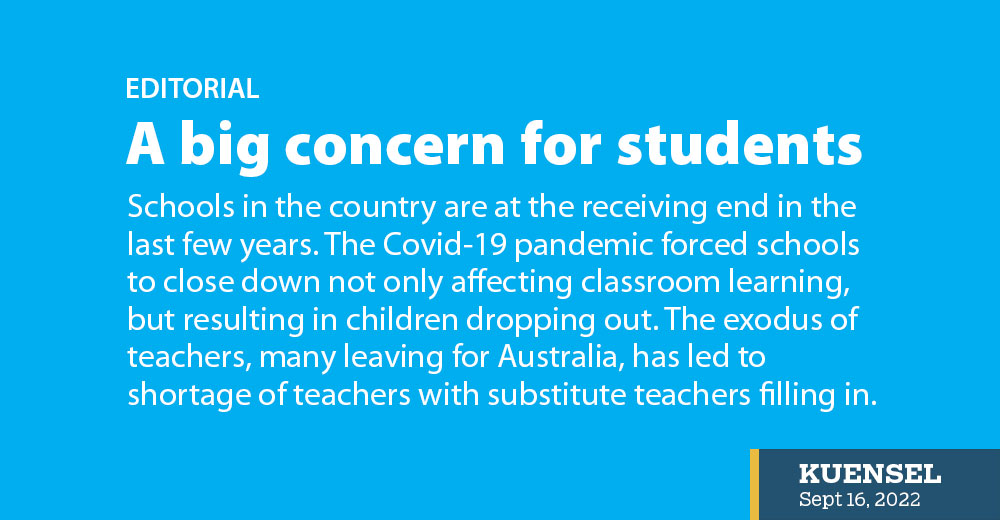Schools in the country are at the receiving end in the last few years. The Covid-19 pandemic forced schools to close down not only affecting classroom learning, but resulting in children dropping out. The exodus of teachers, many leaving for Australia, has led to shortage of teachers with substitute teachers filling in.
It is now a shortage of textbooks. If there are already some shortages, it is going to be worse as schools are not ordering new textbooks for the next academic session to cut down on budget. While budget is a huge concern, depriving thousands of students of textbooks is wrong.
Dzongkhags like Sarpang, Pemagatshel and Samdrupjongkhar Thromde have no budget for textbooks. We are talking about a few hundred schools and thousands of children in the three dzongkhags.
Printing of textbooks was awarded to four printing houses in the country. But there is a problem. The rate quoted based on the volume and the orders are not matching. Without a small profit, printers will not print. A possibility of a difference of 15 to 20 percent change in the volume was agreed upon. But none of the four printers received even 50 percent of the jobs.
Printers quote low to make up from the volume. The rate is disrupted and profit affected when the volume is reduced. They are waiting and, in hindsight, finding loopholes in the procurement or tendering system. If the tenders were floated after confirming the needs of the schools, the problem could have been averted even if the textbooks became costlier.
However, the issue is not about printers and profits. It is about the risk of depriving schools of textbooks, for some the only teaching aid. When the call is on education to be the foundation on which Bhutan needs to build its future, not having basic requirements for school education like textbooks is a big irony. The shortage should be temporary. We need to find longer-term solutions.
If the quality of education is judged by the quality of textbooks, it is in tatters. Textbooks are not the best quality books. The quality is compromised right from the procurement stage. To cut down cost, the most important raw material used, paper, is of the cheapest quality. Therefore, we do not see them last for more than one or two academic sessions.
Schools will need textbooks unless we switch to digital textbooks. This would take some time and a lot of resources to equip all students with laptops or tablets. In the meantime, if the future of the nation is in the hands of the youth, we need to provide them with the right tools so that we can count on them. Textbook is a basic need.
Meanwhile, Kuensel brings up this issue not because we are one of the printers, but because this is an important issue where the future of young children will be affected. And the textbook issue is a recurring problem among all the stakeholders. Students or education should not bear the brunt of misplaced policy or priorities.


